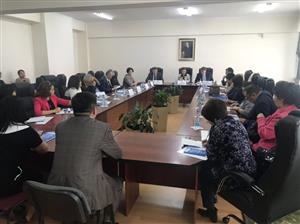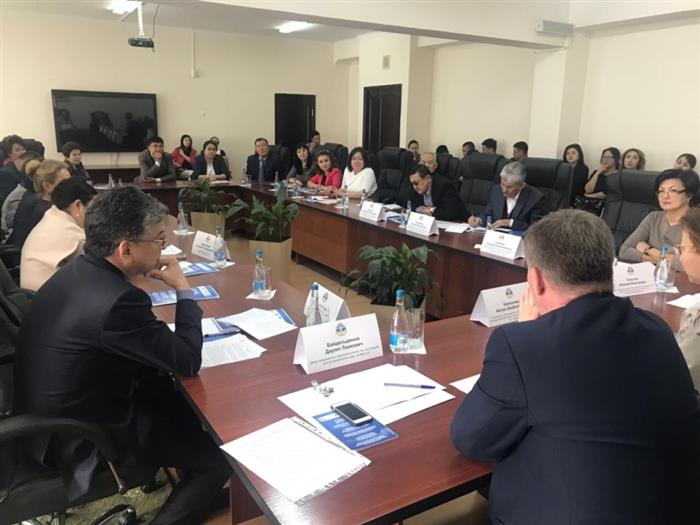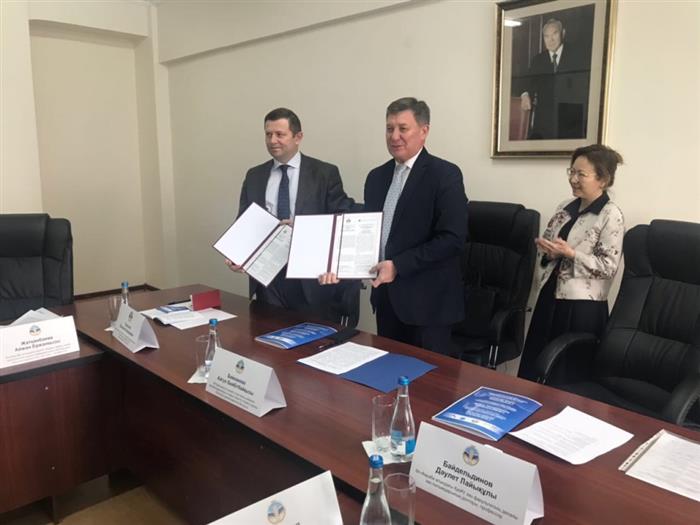- Main page
- News
Digital Law
4/7/2018
On April 6, 2018, the International Scientific and Practical Conference "Digital Law: Specifics of the Kazakhstan Model and New Directions of Development" was held by the Law Faculty of the al-Farabi KazNU within the framework of the V Anniversary International Farabi Readings, issues of digitalization and provision of this process with specialized legislation at the world and national levels were considered. Scientists from Russian Federation, Finland, Spain, France and other countries took part in the conference.
Practical issues of digitalization of public administration (e-government) are reflected in the reports of head of the Department of the Agency for Civil Service and Anti-Corruption Affairs Baikhanova A., and deputy head of the Department of Justice Bazarbayev K.B.
Kazakhstan underwent a serious stage of informatization, having passed from the elimination of computer literacy to the introduction of e-government, the widespread provision of the Internet through fiber-optic networks and other achievements in this field. Adopting the fact that the place of the state in the world system is largely predetermined by the state of cybersecurity and the development of the information sector of the economy determines the need for cardinal steps at the governmental level. The next stage in this process was the digitization of the economy as a necessity to meet world trends.
In the scientific literature, there are various predictions of the positive and negative impact of digitalization on the system of political, social and economic rights of the individual. The emergence of the concept of cybersecurity, which affects all subjects of national security, also poses new challenges for legal science. The state bodies are tasked with adequately responding to real and potential threats to the interests of a single individual, the interests of society (as a community of citizens of a single country, and society as a union of all people). The problem of preventive influence, protection of public consciousness from negative influence through social networks, protection of personal data and other secrets protected by the law, including protection of information carriers from destructive influence is actualized.
The solution of these problems first and foremost involves technical, and then legal aspects, which in turn regulate the very possibility of using these most technical and other organizational means of protection. Accordingly, the law continues to be a security mechanism of the process of informatization, digitization and protection.
During the conference, scientists and practitioners paid special attention to theoretical issues of space law, genetic law, the law of digital identification and robotization, as well as modern problems of information law, constitutional, legal, civil law, administrative legal, financial and legal regulation of legal relations in Internet space, as well as problems of legal responsibility in the information sphere.
As a result of the scientific dialogue, a number of proposals were made, including applied ones. It is determined that the legal assistance of the state in the development of the digital economy should consist of two parts. The first - the legislative framework, adapted to the new realities, including the correct ways of accounting for the means of production and the legal protection of companies. The second part is the creation of favorable conditions for companies that are following the way of digitalization of production.



